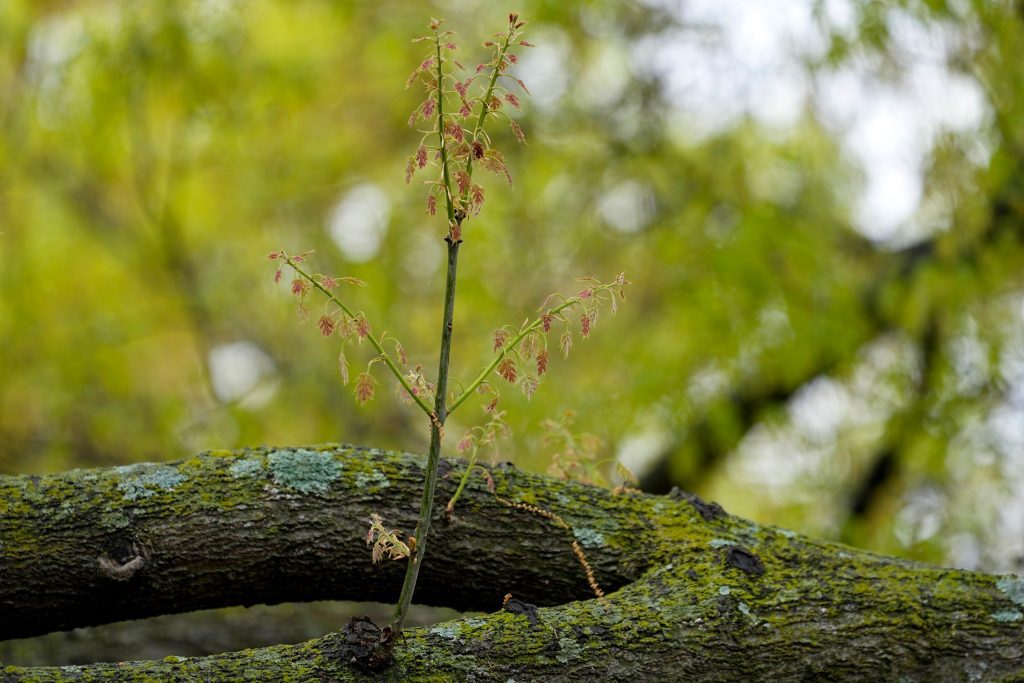By DEVI SHASTRI (AP Health Writer)
Allergy season is here — and it’s arriving sooner and stronger than expected.
More than 80 million Americans experience itchy eyes, runny nose and other symptoms of seasonal allergies, according to the Asthma and Allergy Foundation of America. seasonal allergies, according to the Asthma and Allergy Foundation of America.
The amount of discomfort people will experience depends on their location and specific allergies, but there are things you can do to feel better.
Pollen levels were high early this year.
Dr. Rachna Shah typically checks pollen levels in the Chicago area in April. However, she looked at her data in mid-February and found that tree pollen was already at a “moderate” level.
“This season has been so crazy,” said Shah, an allergist and director of the Loyola Medicine Allergy Count. She attributed this to a relatively mild winter, but didn’t anticipate it to happen so early. Loyola Medicine Allergy Count. “Granted, it was a pretty mild winter, but I didn’t expect it to be so early.”
According to Shah, she predicts this season will be longer than previous years, provided the weather stays warm. Experts say that longer and more intense allergy seasons have resulted from climate change. longer and more intense allergy seasons.
Which cities have it the worst?
The Asthma and Allergy Foundation of America releases an annual ranking of the most challenging cities to live in for allergy sufferers, based on over-the-counter medicine usage, pollen counts and the number of available allergy specialists. This year, the top five were Wichita, Kansas; Virginia Beach, Virginia; Greenville, South Carolina; Dallas; and Oklahoma City. Dr. Nana Mireku is an allergist in the Dallas-Fort Worth area and stated that “people are pretty miserable right now and allergists are pretty busy.” Which pollens cause allergies?
There are three main types of pollen that cause seasonal allergies. In early spring, tree pollen is the primary cause. Following that, grasses pollinate, and then weeds in late summer and early fall. According to the Asthma and Allergy Foundation of America, some of the most common tree pollens that cause allergies include birch, cedar, cottonwood, maple, elm, oak and walnut. Grasses that cause symptoms include Bermuda, Johnson, rye and Kentucky bluegrass. Pollen trackers can assist in planning your day
The best way to control allergies is to avoid exposure. However, this can be challenging when everyone wants to enjoy the spring weather.
To prevent allergy problems, keep windows closed at home and in the car, avoid going out when pollen counts are highest, and change clothes when you get home.
Pollen trackers can aid in planning. The American Academy of Allergy Asthma and Immunology monitors levels through a network of counting stations across the U.S. Counts are accessible via its website and through email.
How to relieve allergy symptoms
The initial step is to determine what exactly you’re allergic to, according to Mireku, who mentioned that many Americans are allergic to multiple things. Allergists can conduct tests for different triggers.
Over-the-counter nasal sprays can help alleviate symptoms, but they take some time to take effect, so it’s best to start using them in early March, advised Shah.
Antihistamines are another option. Shah noted that she has observed some patients benefit from switching to a similar brand if one stops working, but acknowledged that there isn’t much broader data supporting the recommendation. Immunotherapies in the form of shots and oral drops can help young children and individuals who need multiple allergy medications become less sensitive to allergens, addressing symptoms at their source..
The Robert Wood Johnson Foundation provides support to The Associated Press Health and Science Department. The AP is entirely accountable for all content.
In the U.S., allergy season is beginning earlier than anticipated by experts.
Over-the-counter nasal sprays can help relieve symptoms, but they take a while to kick in, so it’s best to start them in early March, Shah said.
Antihistamines are another option. Shah said she’s seen some patients benefit from switching to a similar brand if one stops working, but said that there isn’t much broader data to back the recommendation.
For young children and people who have to take many different allergy medications, immunotherapies in the form of shots and oral drops can help desensitize the immune system to allergens, treating symptoms at their root.
The Associated Press Health and Science Department receives support from the Robert Wood Johnson Foundation. The AP is solely responsible for all content.









